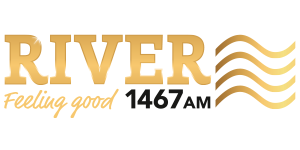Advertisement

River 1467’s Fire Ready Tips
Click on your fire district for the latest warnings for your region;
20 Fire Ready Tips
- Making informed decisions now is vital to your safety during a fire. Now is the best time to understand your fire risk and get prepared, not when a fire starts. Talk to your family, friends and to your neighbours about the fire risk where you live and make plans for what you’ll do on hot, dry, windy days.
- Make sure you know where to check Fire Danger Ratings. Over summer, you’ll need to check the ratings daily to understand your fire risk.
Remember that as ratings increase, so does your risk of fire. - Last summer there were over 2,300 warnings issued in Victoria. It’s up to you to stay informed using more than one source of information and understand the levels of warnings, what they mean and what you should do.
- This summer, on hot, dry, windy days, fires will start and spread quickly, the best way to protect yourself and your family is to leave early. If the Fire Danger Rating is Code Red, Extreme or Severe, you’re risking your life if don’t take action.
- In the lead-up to summer, CFA brigades around the state are getting out and about in their community to talk about preparing for fire.
For more information on how to get prepared for summer, go to www.emergency.vic.gov.au. - Taking steps to prepare before a fire starts means it will be easier to act when you’re under pressure. It’s important to prepare your property for fire, but you also need to prepare yourself. Pack important documents, photos, medications, money and clothes so you can leave easily before a fire starts.
- Talk to your family and friends about how you’ll know when to leave and where to go to stay safe. Do you have family, friends or neighbours who need help preparing to leave early? Talk to them about when they’re going to leave, where they’re going to go, and how you can help.
- Use Fire Danger Ratings to decide when to leave. Fire Danger Ratings are not a weather forecast – they tell you how dangerous a fire would be if one started. As the ratings increase, so does your risk of fire.
- This summer, you could be at serious risk of uncontrollable fires on Code Red, Extreme and Severe days. It’s up to you to stay informed. Check the Fire Danger Ratings daily and act to protect yourself and your family.
- For information on how to stay safe this summer, visit emergency.vic.gov.au or ring the Victorian Bushfire Information Line on 1800 240 667.
If you have a hearing or speech impairment, contact the Victorian Bushfire Information Line (VBIL) on 1800 555 677. If you don’t speak English, call 131 450 for translated information. - If you live or work close to bush, grassland, parks or paddocks on the outskirts of Melbourne or a regional centre, you could be at risk of fire this summer. You need to understand your risk and know what to do when a fire starts. You’re at risk of fire this summer if you live near bush, grassland or coastal scrub.
- Talk to your family, friends or neighbours about where you’ll go and when you’re going to leave. It will be easier for you to get out before a fire. If you rely on others for care or support, you must leave before an increased fire risk day – don’t wait to receive a warning.
- On hot, dry, windy days, fires can start and spread quickly. If the Fire Danger Rating is Code Red, Extreme or Severe, you’re risking your life if you wait and see. Leaving early is the safest option to protect yourself and your family.
- Leaving late means driving your family through smoke, fallen trees and powerlines, and facing the risk of being trapped or worse. Choose the safer option of leaving early and protect yourself and your family. Waiting to leave means that a drive that normally takes a few minutes could take hours or you may not be able to get out at all.
- Warnings are issued when a fire has started and you need to take action. You should never wait to receive an official warning before you leave. Fires can start quickly and threaten homes and lives within minutes.
- Make sure you understand the three levels of warnings and what they mean. The three levels of warning are Advice, Watch and Act and Emergency Warning. Don’t expect warnings to be issued in any particular order. The first warning you hear about could be an Emergency Warning.
- Always use more than one source for warnings. Tune in to local radio and designated community radio stations or Sky News TV, phone the Victorian Bushfire Information Line on 1800 240 667, visit www.emergency.vic.gov.au, download the FireReady App, and check CFA’s Twitter accounts.
- If you’re travelling this summer, check the Fire Danger Rating for your destination before you go and when you arrive, and listen to local radio for warnings and advice while you’re on the road.
- Monitor weather conditions while you’re away by listening to local or ABC radio and talking to locals about the fire risk when you arrive. On Extreme or Severe Fire Danger Rating days, it’s safer to travel to cities and towns. Never travel into a high−risk area where a Code Red has been forecast.
- Be aware of grassfires when you’re travelling. Grassfire can move at speeds of up to 25 km/hr and jump highways. Check weather conditions and your fire risk before leaving home because you may not get phone reception across regional Victoria.
Advertisement
Advertisement
